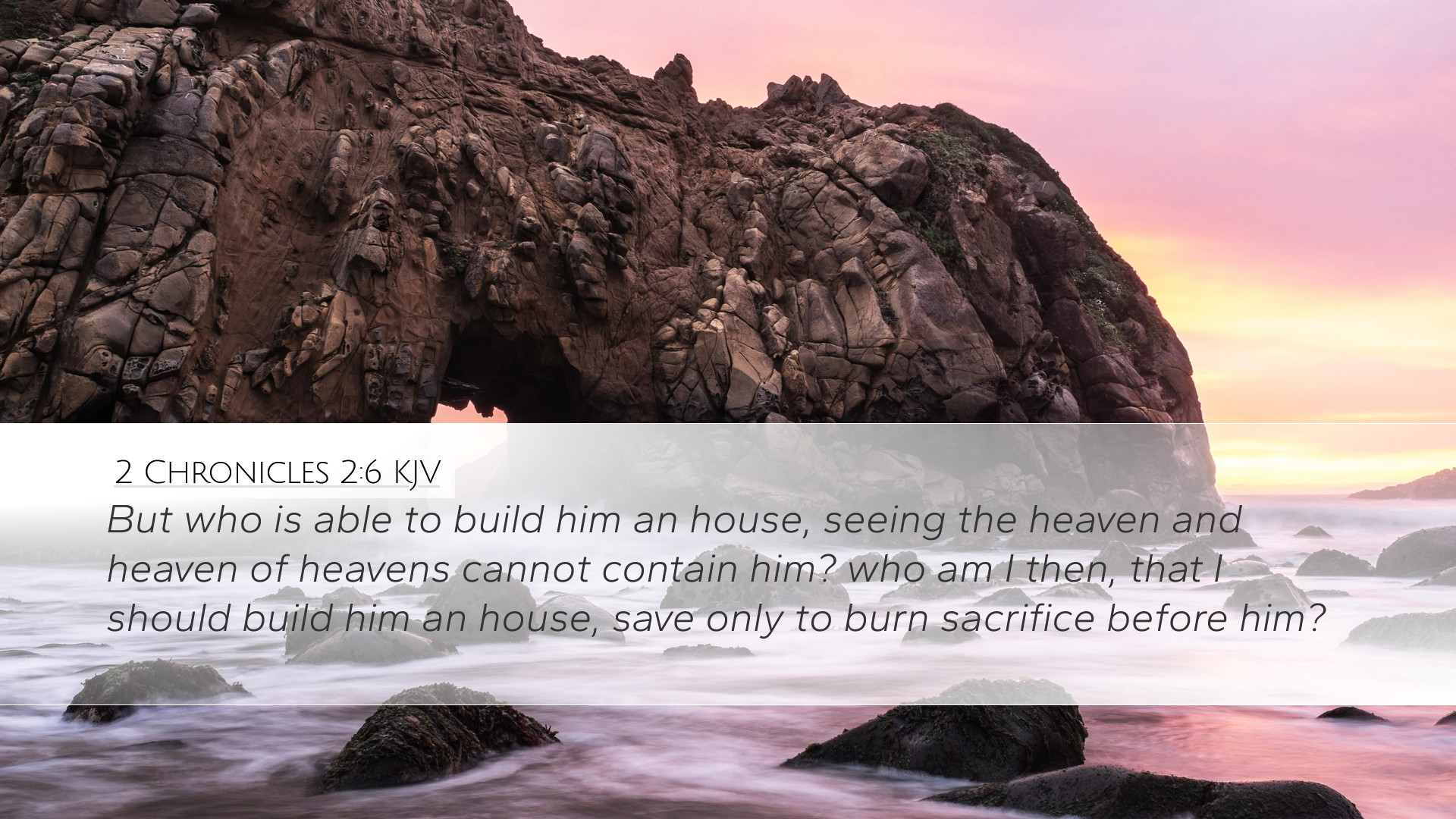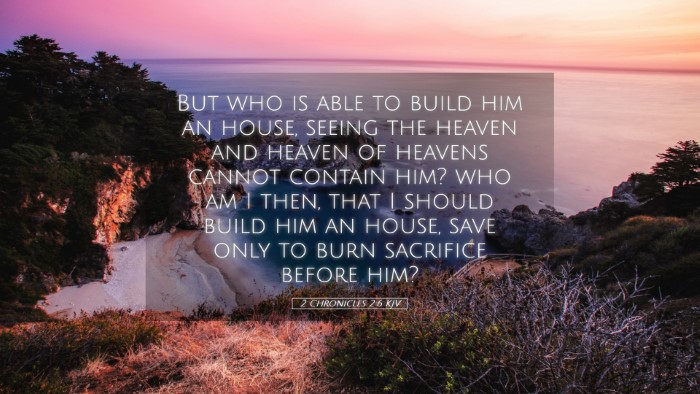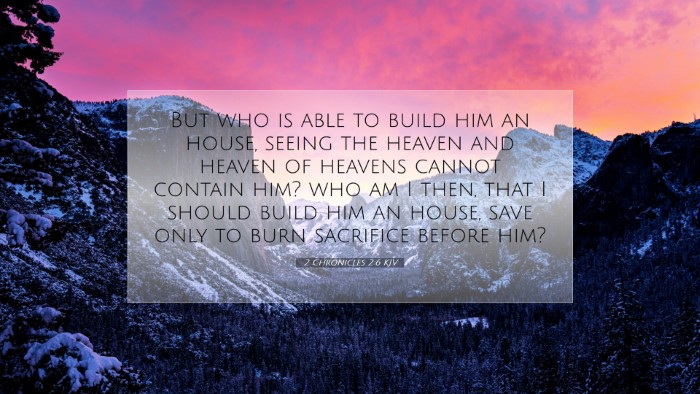Commentary on 2 Chronicles 2:6
Verse Text: "But who is able to build him a house, seeing the heaven and heaven of heavens cannot contain him? who am I then, that I should build him a house, except only to burn sacrifice before him?"
Contextual Background
In this passage, King Solomon speaks as he is preparing to build the temple for the Lord. The context is that Solomon, having succeeded his father David, is aware of the immense task ahead of him. He understands the significance of building a temple for the God of Israel, who is beyond all creation. This verse reveals Solomon's humility and recognition of God's transcendent nature, which is a theme richly explored in public domain commentaries.
Insights from Commentaries
Matthew Henry's Commentary
Matthew Henry emphasizes Solomon's acknowledgment of God’s greatness and uncontainability. He points out that Solomon rightly recognizes that even the highest heavens cannot contain God. This is a pivotal moment that sets the tone for Solomon’s future reign and temple construction. Henry notes that Solomon’s humility here is crucial; he does not presume that his actions can confine or adequately house the divine presence. Instead, he sees the temple primarily as a place for sacrifice and worship, reflecting a heart that is attentive to God rather than a prideful desire for grandeur.
Albert Barnes's Notes
Albert Barnes sheds light on the philosophical implications of Solomon’s thoughts. He suggests that the verse articulates a doctrine of God's omnipresence. Barnes further mentions that Solomon’s statement illustrates an understanding of the Creator’s supremacy over creation. The question posed in the verse, “who am I then,” indicates a deep sense of reverence and a humble approach to divine service. This humility is essential for spiritual leaders and serves as a model for contemporary ministry practices, encouraging leaders to adopt a posture of service rather than entitlement.
Adam Clarke's Commentary
Adam Clarke elaborates on the emotional and spiritual dimensions of Solomon’s words. He highlights the awe and reverence Solomon feels in considering the task of building a house for the Lord. Clarke mentions that the phrase "except only to burn sacrifice before him" reflects the understanding that the temple's primary function is worship, not merely a physical structure. Clarke also comments on the historical implications, noting that Solomon built the temple not just for his time but for generations to come, emphasizing the perpetual nature of worship and the enduring relationship between God and His people.
Theological Reflections
This verse invites deep theological reflection on several key themes relevant to pastors, scholars, and theologians:
- God's Transcendence: The acknowledgment that God cannot be contained within physical structures underlines the futility of limiting the divine to human concepts.
- Human Humility: Solomon’s question, “who am I,” encapsulates the essence of humility as pivotal in approaching God. It challenges leaders and believers to consider their place before God.
- Purpose of Worship: The intent behind building the temple serves as a reminder that all physical acts of devotion should center around genuine worship and sacrifice, rather than personal gains or prestige.
Practical Applications
From Solomon’s reflection, contemporary believers can draw several practical applications:
- Worship Focus: Churches and individuals should prioritize worship and sacrifice in their ministries, ensuring that activities and programs facilitate true encounters with God.
- Embrace Humility: Leaders must maintain humility and recognize their dependency on God’s grace to fulfill their calling effectively.
- God Centricity: It is essential to remember that any effort to serve God should not be about building personal empires but rather about furthering the Kingdom of God.
Conclusion
2 Chronicles 2:6 serves as a profound reminder of the nature of God and the humble posture required of His people. The insights from public domain commentaries by Matthew Henry, Albert Barnes, and Adam Clarke coalesce to paint a picture of a leader who understands the gravity of constructing a place for the Lord and recognizes his own limitations in the divine scheme. For modern-day Christians, this verse compels us to reflect on the purpose of our service and the reverence we ought to maintain in our relationship with God.


